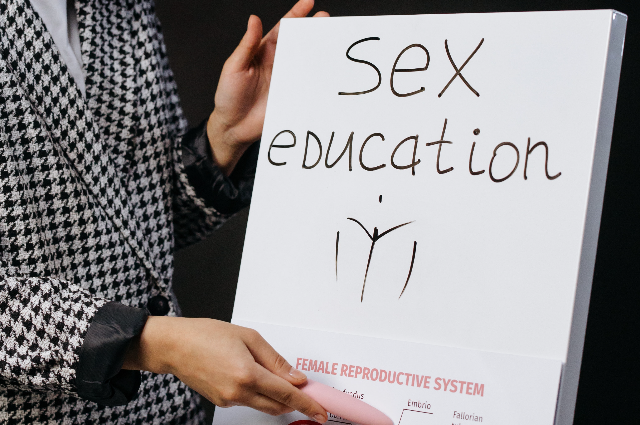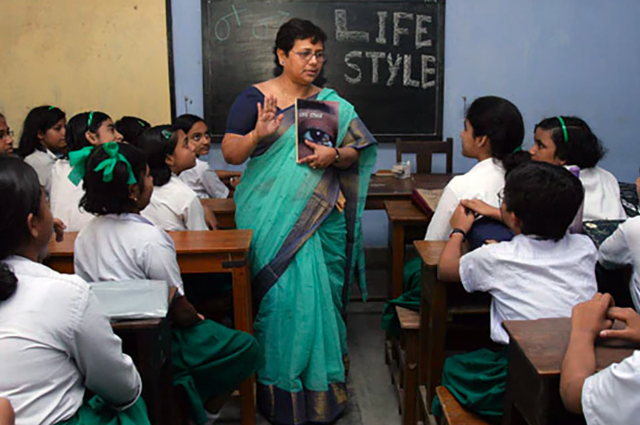
India is growing rapidly with huge transformation in its society, but it coexists with its deep-rooted cultural approach towards certain things. Even after a rising concern about numerous young children requiring to be aware of their sexual health needs, it is still a huge taboo in India. Since this topic is predominantly related to sex and sexual activities, which is culturally a very sensitive matter in India, students are often ignored to get suitable knowledge. Sex being a huge taboo in India, we often try to ignore it very conveniently.
Sex Education program educates and informs young individuals about sex, sexuality, sexual health and sexual rights, and other related things at a proper age. It increases the alertness and comfort of young students about their own body, and that of the opposite gender. However, it is not taught in most Indian schools. Even though the standardized curriculum includes health and physical education as a requirement, the prominence is only on physical activity and health check-ups. Numerous young individuals stay ignorant about these topics, and later they get trapped into things like porn addiction and Sexually Transmitted Diseases (STDs). However, such habits do not occur suddenly, and it is an extensive development from the earlier stages in life which creates these circumstances.

When we are children, our parents feel that we are immature to know about sex, and when we become adolescents, our parents feel shy talking about it. In our country, buying protective measures like condoms results in people looking at you with shock. Sanitary pads are given in newspaper wraps, and menstruation is forbidden to others. People also believe in the status of virginity, particularly for women. Premarital sex is no less than a social crime in India. We lack open conversations and discussions on such important topics, and the only excuse with which many people defend themselves is that they are ‘Sanskari’. We often forget that a book which mentioned sex and pleasure in it, the ‘Kamasutra’ was written in India that too hundreds of years ago. Yet, living in modern society, we lack such matters which are very significant.
There are numerous reasons behind sex education being a huge taboo in Indian schools. Many people believe that teaching sex education to age-appropriate school children, will only cause them to get addicted to sex, and issues like teen pregnancy will emerge, and such topics create fear about sex education in schools. There is also a misconception about Sex Education that it is only needed in western countries, where they have problems like child abuse and teen pregnancy, and it does not happen in India. However, according to a National Crime Records Bureau (NCRB) report, in 2018, a total of 39,827 cases of sexual abuse in children were reported in India.

Another stigma related to this topic is that boys in society do not need sex education, because they do not get abused or raped. But according to a survey by an activist Insia Dariwala, which surveyed 1500 males, out of which 71% of men said that they were sexually abused. And 84.9% of males said that they had not told anyone due to less knowledge, shame, and confusion. Our orthodox society also believes that teaching some topics like homosexuality will make their child a homosexual, which they think is morally wrong and against nature. Students should learn about sex on their own or after marriage, and young children should not be corrupted with sex education. All such misconceptions about sex education are deep-rooted in our society and even in the Indian educational system. And these are reasons why sex education is still not a part of the educational curriculum in India.
Many young children do not understand the reproductive system, and sexual health and their behavior in this regard is directed mostly by myths and misconceptions, making them vulnerable to risky situations like drug abuse, porn addiction, and HIV/AIDS transmission. However, with a recent Health and Wellness Curriculum under the Indian government, school children will be taught the safe use of the internet and social media, reproductive health, prevention of HIV, and gender stereotypes. The ministries of Human Resource Development and Health and Family Welfare developed this curriculum together, and it was launched in 2020.

This new curriculum includes sex education, even though the phrase itself has not been used anywhere in it, and it is said as ‘Adolescence Education’. This directly indicates the problem that we Indians have with the word ‘sex’. However, there is no data about how many schools in India are really teaching a subject of sex education or adolescence education. Several other people are also trying to change the lack of sex education and other harmful realities through networking and nongovernmental agency initiatives.
With all of this, we need to increase the responsiveness for sex education among Indian schools and also other community establishments. It is significant to let people know that sex education does not teach children how to have sex at an early age, but it teaches them about the biological, psychological, and social aspects of leading a healthy sexual life. It includes not only the physical act of sex, but also the physical changes, gender identity, prevention of sexual diseases, consent, and awareness about sexual abuse as well.
________________________________________________
Reference:
- www.mayoclinic.org
- www.borgenproject.org
- www.theprint.in
- www.nhp.gov.in
- www.ncrb.gov.in
- www.thecitizen.in
